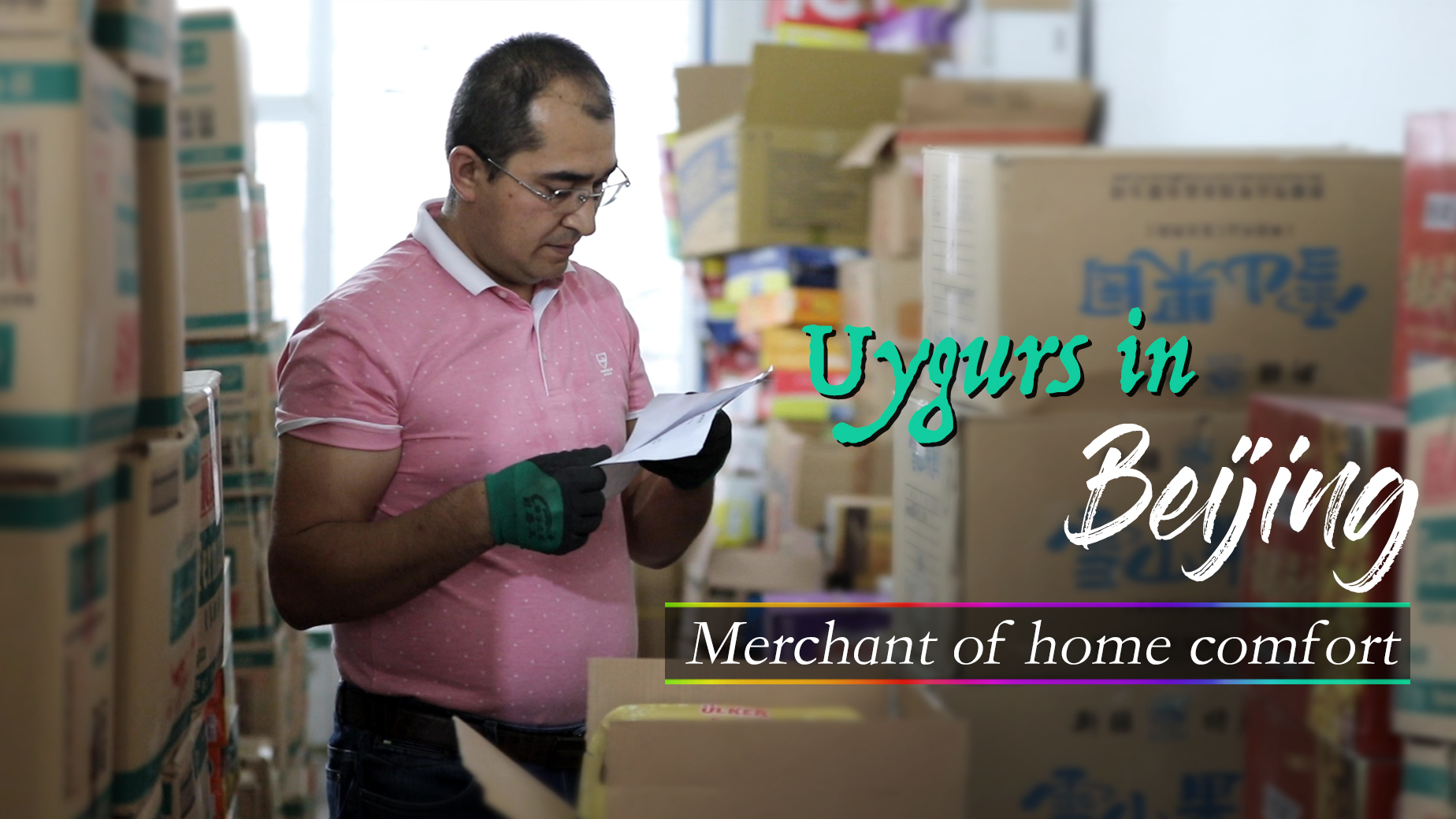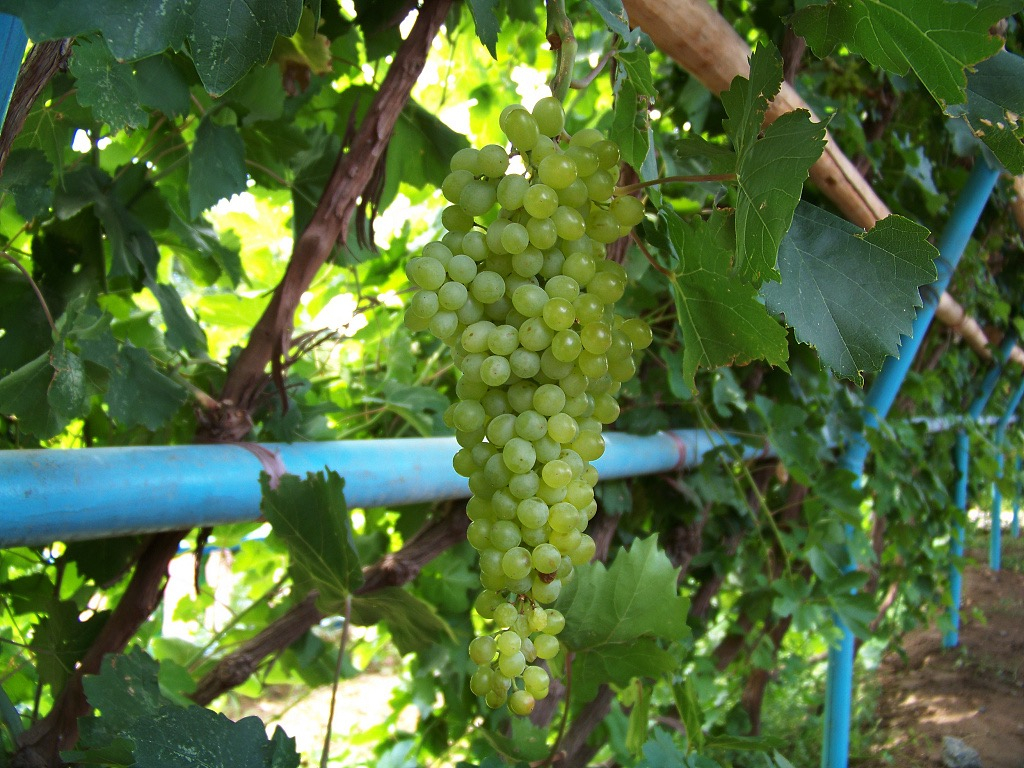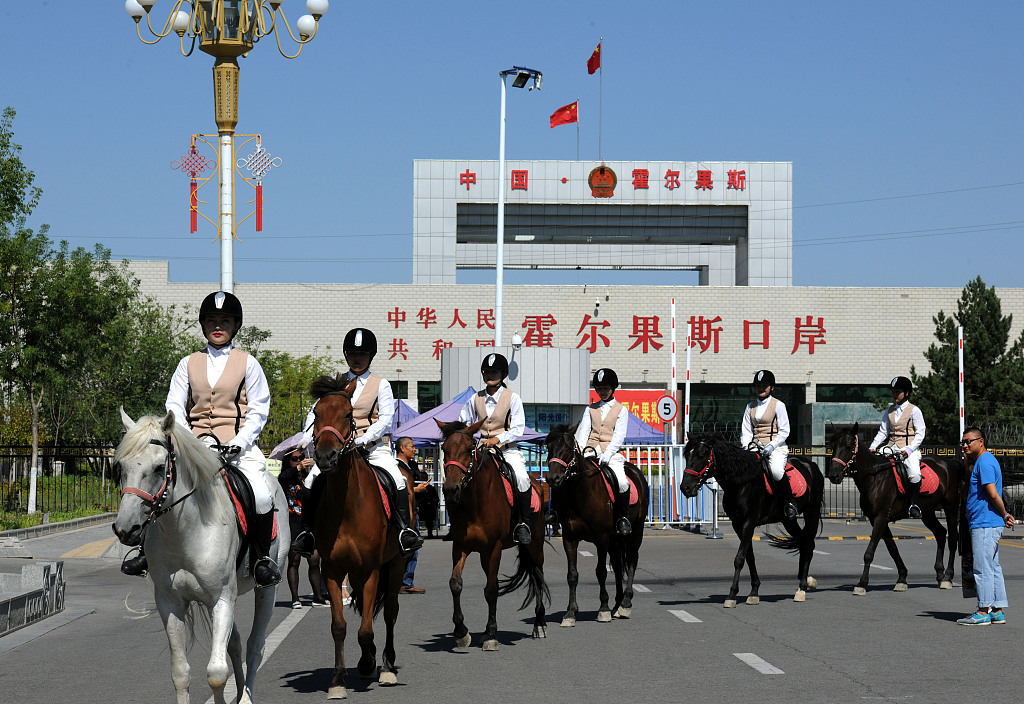03:45

"I don't feel like living a dull life, so I started my own business, which I think could help change the destiny of my family," Kaysar said. He's one of the few Uygurs running their own companies in Beijing.
Kaysar Ghojaylim, a native of Atux, in southern Xinjiang's Kizilsu Kirgiz Autonomous Prefecture, came to Beijing in 2012 after graduating from university. He did well enough in school to make it into Southwestern University of Finance and Economics, a national key university based in Chengdu, Sichuan Province. During his college years majoring in information management and information systems, he showed talent for entrepreneurship.
"I participated in a venture contest with my classmates in my last year of college, and went to Beijing after graduation in 2011, eyeing more opportunities and a bigger market," Kaysar told CGTN. It was difficult to develop a market in the Chinese capital which, back then, didn't have much variety in Xinjiang food. "It really takes a toll to run the business. I had to recommend each and every product to potential clients, and then wait for the onslaught of refusals," said Kaysar.

Grapes in Xinjiang /VCG Photo
Grapes in Xinjiang /VCG Photo
He is proud of Uygur specialties – most of which are the essential foods of locals back home, including milk tea made with black tea leaves and salt, naan, nuts and dried fruits, as well as an assortment of juices. In his eyes, selling these home comforts to people outside of Xinjiang is a way to express his love for the land where he was born and raised.
During these years, Kaysar dedicated all his time and energy to operating the food business, with hardly a day of rest. "He was even absent when I gave birth to our children," his wife Humagul Memet said, with tears glistening in her eyes. Kaysar and Humagul were classmates during middle school and got hitched after graduating from university. Humagul mainly worked as an accountant for her husband while taking care of kids and housework.
Hard work paid off. Kaysar established his own company in 2015 after selling local comforts for four years. Now he's the only distributor of several brands from the Xinjiang Uygur Autonomous Region and beyond. "Around 70 percent of the products are from Xinjiang. The rest come from Russia, Sri Lanka, Malaysia and Central Asian countries."

Policewomen on horseback stand guard in a line at the Horgos port, in northwest China's Xinjiang Uygur Autonomous Region, July 31, 2018. /VCG Photo
Policewomen on horseback stand guard in a line at the Horgos port, in northwest China's Xinjiang Uygur Autonomous Region, July 31, 2018. /VCG Photo
A great proportion of the products are exported through the Horgos port at the China-Kazakh border city. A hub on the ancient Silk Road, the port is regaining its glory on the Eurasian continent with over 2,000 China-Europe freight trains passing between January and August this year. All this has helped Kaysar's business tremendously.
His business is doing well as time goes by in the highly competitive market of the bustling metropolis. His sense of responsibility and integrity has won over many of his clients – mostly middle schools which opened classes for Uygur students, universities for nationalities, and restaurants catering to Muslims.
Kaysar is a stronger believer in diligence bringing happiness, for himself and his family. After years of hard work, he bought his family a house in adjacent Tianjin and sends his older son to a kindergarten near his company in Beijing. "If I work hard, I can give my family a guarantee and offer cushion for my children's education in the future," he said.
Video director: Yang Shengjie
Reporters: Wang Xiaonan, Zeng Ziyi
Videographer and video editor: Yang Shengjie
Cover image designer: Yu Peng
Supervisor: Zhang Shilei
This is the second story in our series, "Uygurs in Beijing" – a continuation of the series "A rare look into southern Xinjiang." The first one can be found here.